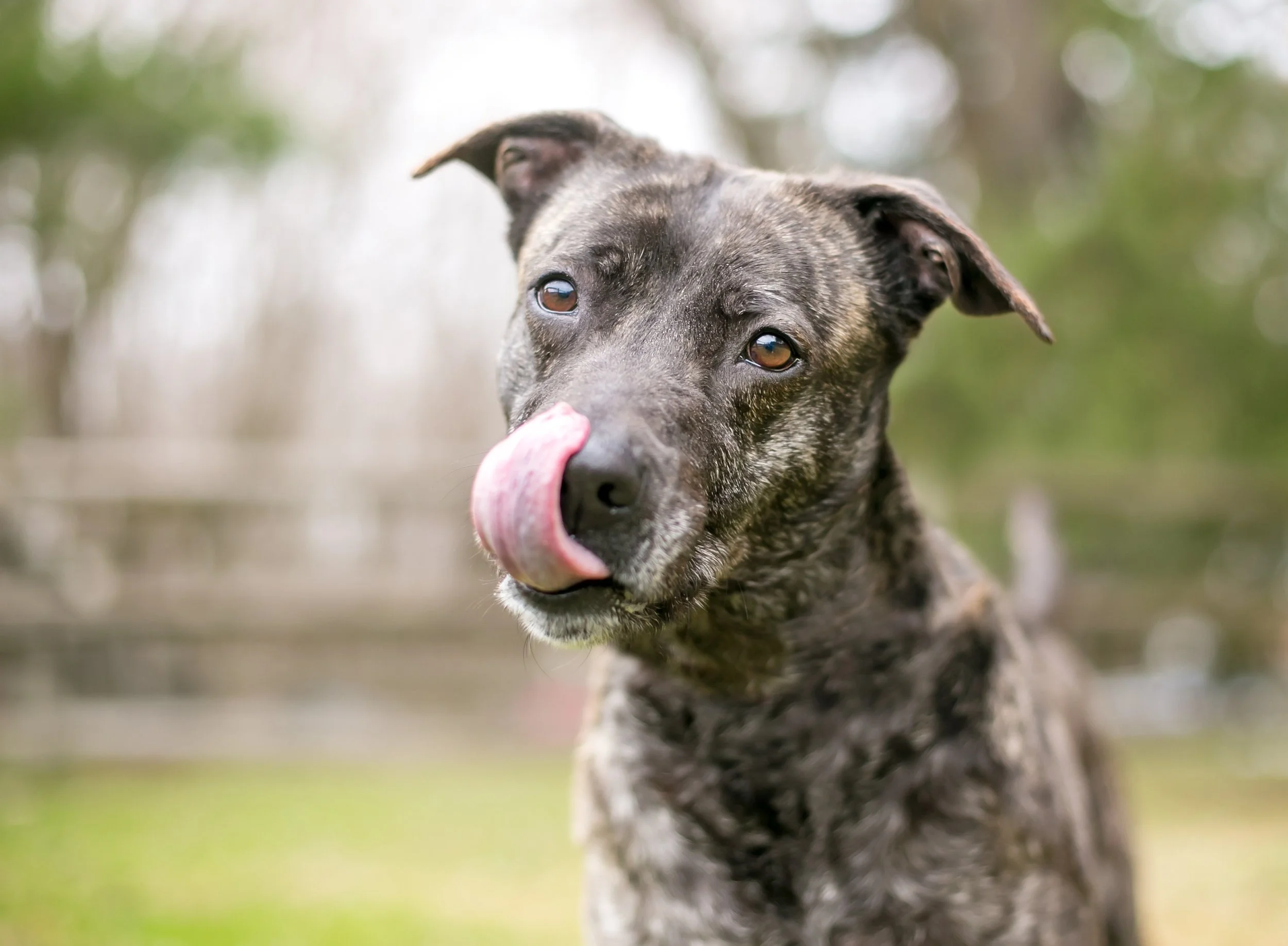Holistic Solutions for Dogs Who Eat Poop
If your dog has a habit of eating poop—a behavior known as coprophagia—you’re not alone. This unpleasant habit can be frustrating and concerning for dog owners. But instead of viewing it as just a gross quirk, it’s essential to dig deeper into the potential reasons behind the behavior and how holistic care can help address it.
“Coprophagia is often a symptom of an underlying issue, whether physical, emotional, or environmental,” explains Denise Bozenski, certified holistic pet health coach and owner of Fetch This Canine. “By addressing the root causes holistically, we can guide dogs toward healthier habits.”
Let’s explore why dogs eat poop and how you can manage this behavior through natural, supportive solutions.
Learn more about Denise HERE!
Why Do Dogs Eat Poop?
Nutritional Deficiencies
One of the most common causes of coprophagia is a lack of essential nutrients in a dog’s diet. If your dog isn’t receiving adequate vitamins, minerals, or enzymes, they may turn to feces as an instinctive way to supplement their diet.
“A dog’s diet is foundational to their overall health,” Denise says. “When we rely on processed kibble or incomplete meals, nutritional gaps can manifest in behaviors like coprophagia.”
For more information on improving your dog’s diet, check out The Benefits of a Raw Diet.
Gut Health Imbalances
A dog with poor gut health, including imbalanced microbiota or digestive enzyme deficiencies, may struggle to absorb nutrients properly, leading to unusual cravings.
“Supporting your dog’s gut health is crucial for overall wellness,” Denise advises. “Adding probiotics, prebiotics, and digestive enzymes to their diet can help restore balance and curb this behavior.”
Learn more about gut health in The Role of Gut Health In Pet Wellness.
Behavioral Triggers
Sometimes, poop-eating is less about nutrition and more about behavioral factors. Stress, boredom, anxiety, or even attention-seeking behaviors can drive dogs to engage in coprophagia.
“When dogs are under-stimulated or stressed, they often develop coping mechanisms,” Denise notes. “Providing proper enrichment and a calm environment is key.”
If your dog struggles with boredom, read The Benefits of Enrichment Activities For Pets.
Holistic Solutions for Coprophagia
Enhance Nutrition
Start by evaluating your dog’s diet. Opt for whole, nutrient-dense foods or consider transitioning to a raw diet. Adding supplements such as probiotics, digestive enzymes, and omega-3 fatty acids can fill in nutritional gaps. Increasing green vegetables can help deter coprophagia as well as increasing dietary fats in small amounts.
“Food is medicine,” Denise reminds us. “Feeding a species-appropriate, balanced diet can address deficiencies and reduce behaviors like coprophagia.”
Support Gut Health
Include fermented foods like kefir or goat’s milk and supplements such as prebiotics and probiotics in your dog’s meals. These promote healthy gut flora and improve nutrient absorption.
Provide Mental and Physical Stimulation
Daily walks, interactive toys, and puzzle feeders can reduce boredom, stress, and attention-seeking behavior. A well-stimulated dog is less likely to develop unhealthy habits.
Address Stress and Anxiety
Use calming strategies like herbal supplements, CBD oil, or natural pheromone sprays to reduce stress. A consistent routine and plenty of positive reinforcement can also help anxious dogs.
Keep Their Environment Clean
Prevent access to feces by promptly cleaning up after your dog and monitoring them closely during outdoor activities.
“Management is part of the solution,” Denise says. “Removing temptation while addressing root causes creates the best outcome for both the dog and their owner.”
Consider Herbal Remedies
Some herbs, like parsley and fennel, may help improve digestion and reduce the desire to eat poop. These can be sprinkled onto your dog’s food for added benefits. A multi B vitamin compound can also be beneficial. Acidophilus supplements have been effective for some dogs as well.
Overall Wellness
While coprophagia can be distressing, it’s often a sign of an underlying issue that can be resolved through a holistic approach. By addressing your dog’s diet, gut health, mental stimulation, and overall well-being, you can help curb this behavior naturally and effectively. Adding one change at a time is important to see what works and what does not. It is unnecessary to continue to add changes once the behavior is eliminated.
“Every dog is unique, and a tailored approach to their care is essential,” Denise says. “By understanding the root cause of their behavior, we can guide them toward healthier habits.”
For more information on holistic care for your dog, visit Fetch This Canine.
FAQs
Why is my dog eating poop even though they eat a healthy diet?
Even with a healthy diet, factors like stress, gut health imbalances, or behavioral triggers can contribute to coprophagia. Evaluating their overall lifestyle and emotional well-being is essential.
Can supplements stop my dog from eating poop?
Yes, adding probiotics, digestive enzymes, acidophilus, and omega-3s can address nutritional gaps and improve gut health, reducing the likelihood of coprophagia.
Is poop-eating harmful to my dog’s health?
Yes, eating feces can expose your dog to harmful bacteria, parasites, or toxins. Managing the behavior holistically and maintaining a clean environment is important for their safety.
To stay up on the latest expert advice for all things holistic dog wellness and care, subscribe to our newsletter.


